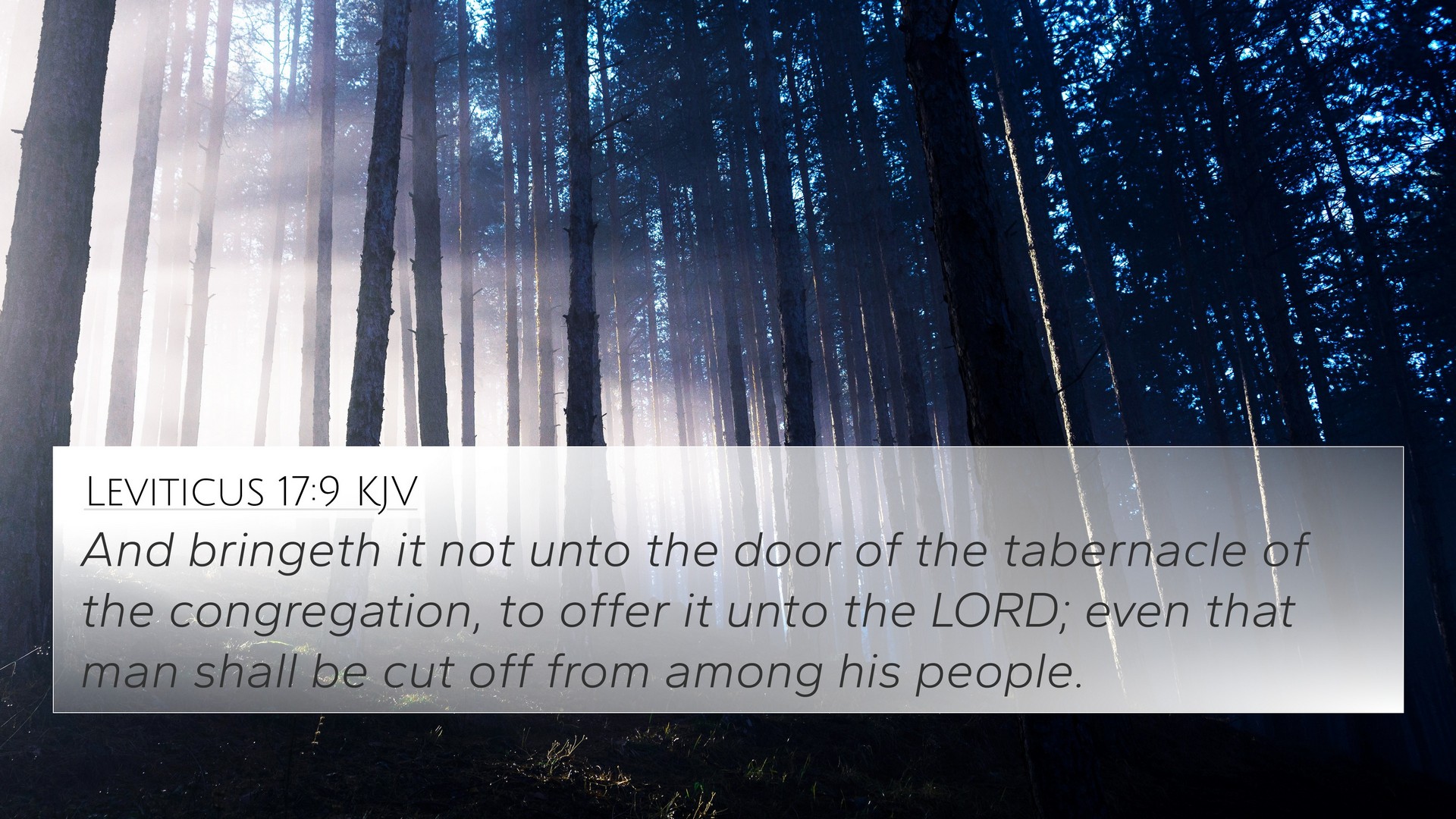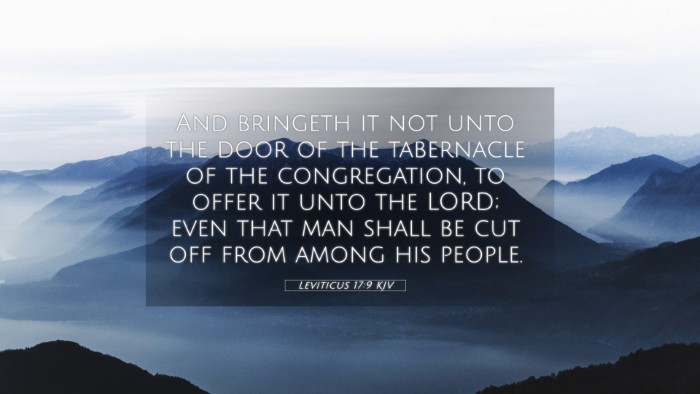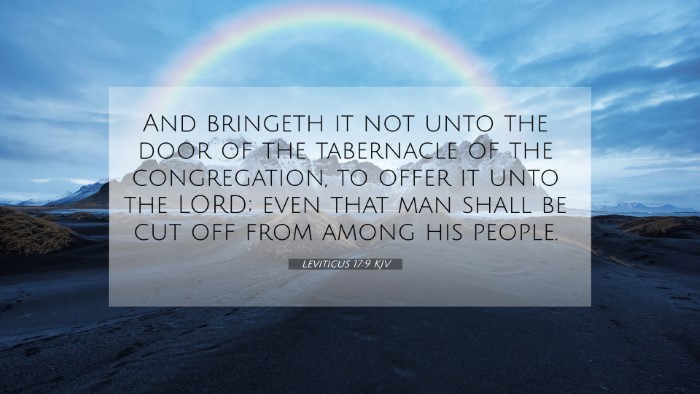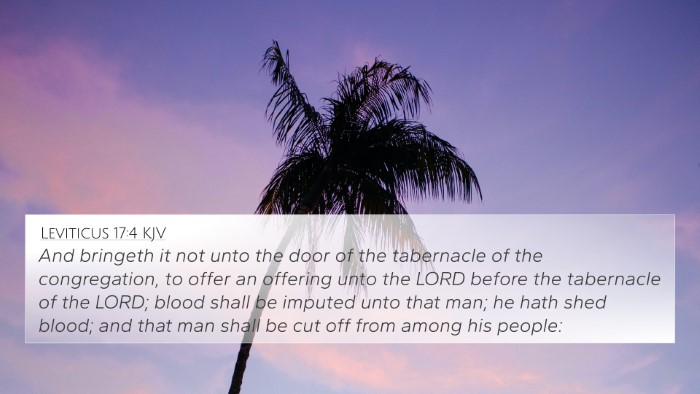Understanding Leviticus 17:9
Verse Text: "And whatsoever man there be of the house of Israel, or of the strangers that sojourn among you, that eateth any manner of blood; I will even set my face against that soul that eateth blood, and will cut him off from among his people." (Leviticus 17:9)
Meaning and Interpretation
Leviticus 17:9 emphasizes the prohibition against consuming blood, an essential aspect of the laws given to the Israelites. This verse not only underscores the serious nature of this command but also highlights God's covenant relationship with His people.
Commentary Insights:
-
Matthew Henry:
Henry notes that this verse signifies God's desire for His people to maintain holiness and separation from the practices of surrounding nations. The consumption of blood is associated with life, and by forbidding it, God teaches that life belongs to Him alone.
-
Albert Barnes:
Barnes interprets this prohibition as part of a larger ritualistic framework aimed at pointing the Israelites away from pagan practices. He emphasizes that the act of eating blood is a direct affront to God's sovereignty and commands holiness among His people.
-
Adam Clarke:
Clarke elaborates on the concept of blood as life, linking this to the sacrificial system. He suggests that the allowance of blood is reserved for atonement and must not be consumed, as it symbolizes the life-redeeming power of God through sacrifices.
Thematic Connections
This verse is crucial for understanding themes of sacrifice, purity, and covenant in Scripture. It serves as a foundation for the later teachings found in the New Testament regarding Christ's sacrifice.
Cross-References:
- Genesis 9:4 - Prohibition of consuming blood after the flood.
- Leviticus 3:17 - A command regarding offerings and blood.
- Hebrews 9:22 - The necessity of blood for atonement.
- 1 Peter 1:18-19 - The precious blood of Christ for redemption.
- Matthew 26:28 - Christ's blood as the new covenant.
- Romans 3:25 - God presented Christ as a sacrifice of atonement through His blood.
- Acts 15:29 - Apostolic decree regarding blood consumption.
Practical Applications
This command highlights the importance of obedience to God’s laws and the recognition that not all cultural practices align with God's holiness. For Christians today, this could extend to understanding the significance of Christ's sacrifice and the call to purity in worship.
Conclusion
Leviticus 17:9 serves a crucial role in the Biblical narrative, linking to themes of life and sacrifice, and providing a foundational understanding for God's expectations from His covenant people.
Further Study on Cross-Referencing:
Engaging in a Bible cross-reference study can deepen your understanding of connections within scriptures. Utilize tools like a bible concordance or cross-reference Bible study guides to explore these relationships further.
Keywords: Bible verse cross-references, connections between Bible verses, linking Bible scriptures, comparative Bible verse analysis, thematic Bible verse connections, scriptural cross-referencing, inter-Biblical dialogue.



